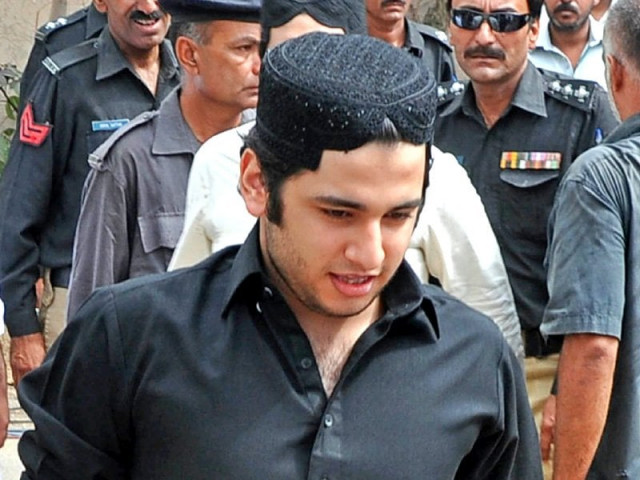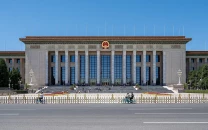SC decides to take up plea against acquittal of Shahzeb Khan murderers
Civil society representatives had moved the apex court against SHC order which set aside sentences of Shahrukh Jatoi

Shahrukh Jatoi. PHOTO: ATHAR KHAN/EXPRESS
In August 2013, an anti-terrorism court (ATC) in Karachi handed down death sentence to Jatoi and Nawab Siraj Talpur for killing Shahzeb Khan on the night of December 24, 2012 when Shahzeb was returning home along with his sister after attending a wedding.
The ATC had also awarded life imprisonment to Jatoi’s accomplices – Sajjad Talpur and his servant Ghulam Murtaza Lashari. Later, Jatoi and others had challenged their conviction in the SHC.
Shahzeb murder case: Shahrukh Jatoi released on bail
The SHC held several rounds of proceedings to review Jatoi’s application for retrial by a juvenile court, his compromise with the victim’s family, the appeals of the other defendants and a reference sent by the ATC seeking confirmation of sentences.
After conclusion of the arguments, the SHC’s two-judge bench, headed by Justice Salahuddin Panhwar, had set aside the ATC’s judgment and sent the case to the sessions court for retrial.
However, right activists – Jibran Nasir, Jamshed Raza Mahmood, Afiya Shehrbano Zia, Naeem Sadiq, Nazim Fida Hussain Haji, Zulfiqar Shah, Aquila Ismail, Fahim Zaman Khan, and Naziha Syed Ali – filed a criminal petition in the Supreme Court, challenging the SHC order.
The petition, filed through renowned lawyer Faisal Siddiqui, asserted that residents of the same city where Shahzeb was murdered, had filed a criminal petition for leave-to-appeal challenging the SHC order for not applying ATA provisions and setting aside the conviction recorded by the trial court.
The petition said the incident of gruesome murder resulted in striking terror which created fear and insecurity in the general public. The civil society members claimed that the fear and panic among the residents of the area offered enough grounds for them to file the case, even though they did not directly know the deceased.
They said they were personally terrorised and intimidated by the murder.
Regarding the November 28 order, the petition said firstly, a murder appeal was disposed of by the SHC in just six pages. Secondly, the family of the deceased did not pursue the appeals pending before the SHC and entered into a compromise with the murderers.
Shahzeb murder case: Eyewitness identifies alleged killers
Moreover, the Sindh prosecutor general, who is the highest criminal law officer on behalf of the government, flatly conceded to the setting aside of the June 7, 2013 ATC judgment “which is a sheer proof of the collusion between the murderers and public officers, especially in view of the past history” of the case, where prosecutors were changed repeatedly, said the petition.
It said the SHC division bench’s order deviated from an earlier and binding judgment of May 15, 2013, which was passed by another divisional bench of the SHC in the same case and on the same issue.
It said the SHC had erred in placing reliance on the ‘Waris Ali and Others’ judgment as “it was clearly inapplicable”.
Admitting the petition, Chief Justice of Pakistan (CJP) Mian Saqib Nisar ordered immediate transfer of the said petition from the Supreme Court’s Branch Registry Karachi to principal seat Islamabad and to fix the matter for hearing. However, a date is yet to be given.



















COMMENTS
Comments are moderated and generally will be posted if they are on-topic and not abusive.
For more information, please see our Comments FAQ